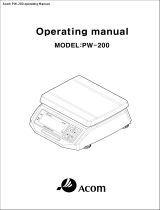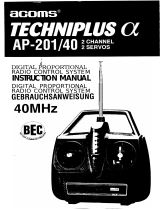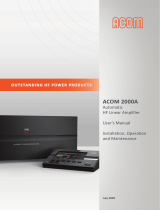
electronics
TECHNICAL SPOTLIGHT - BENDIX
®
ESP
®
The Bendix
®
ESP
®
stability system, available on select coach
models, helps drivers maintain control of their vehicles during loss
of control, jackknife and rollover events by applying select brakes
and reducing throttle, slowing the vehicle down, and helping to
keep the driver in control. While much of the system utilizes
standard ABS brake components, such as wheel speed sensors,
modulators and an electronic control unit (ECU), there are a few
additional considerations technicians should keep in mind when
performing service on Bendix
®
ESP
®
-equipped vehicles.
How the Bendix
®
ESP
®
Stability System works.
Before a vehicle is delivered to a customer, a parameter set
tuned for the specific vehicle configuration is loaded into the ECU
along with the VIN at the OE factory. This “performance-tuning”
ensures optimal performance of the Bendix
®
ESP
®
system for
the specific vehicle configuration. It also means that the ECU
for that specific vehicle cannot be used in any other vehicle,
even if the configuration is the same. (Note: If the Bendix
®
ESP
®
ECU needs replacement, an ECU with the parameter set for that
specific vehicle identified by VIN needs to be ordered from the OE
factory. It is not possible to replace an EC-60
™
Advanced ECU
with one from another vehicle. The VIN on the ECU must match
the specific vehicle.)
Out on the road, the Bendix
®
ESP
®
ECU constantly compares
these known parameters to the vehicle’s actual movement, using
the wheel speed sensors of the ABS system, as well as lateral
acceleration, yaw rate, and steering angle sensors. If the vehicle
shows a tendency to leave an appropriate travel path, or if critical
threshold values are approached, the system will intervene
automatically to assist the driver.
System intervention can vary, depending on the type of event.
In the case of a potential roll event, the system will override the
throttle and quickly apply brake pressure to slow the vehicle below
a critical threshold.
The Bendix
®
ESP
®
system goes further than roll stability-only
systems to help maintain vehicle control. The addition of the yaw
and steering angle sensors provide enhanced performance of the
system on slippery surfaces, such as rain-slicked, snow-covered
or icy pavement. In the case of vehicle slide, skid or spin (“over-
steer” or “under-steer” situations), the system will reduce the
throttle and then brake one or more of the “four corners” of the
vehicle, thus applying a counter-force to better align the vehicle
with an appropriate path of travel. The system typically reacts
sooner than the driver could, but the driver always remains in
control and is able to apply additional braking pressure as needed.
Is the Bendix
®
ESP
®
stability system harder to repair or
maintain than standard ABS?
By utilizing the ABS brake system as a base, the core components
of the Bendix
®
ESP
®
system (wheel speed sensors, modulators,
traction, relays and ECUs) remain essentially the same. Your
current service procedures will be similar. The additional
components (yaw rate / lateral accelerometer, steering angle and
pressure sensors) are based on proven technology with millions
of miles in use. Repair to these sensors is limited to direct part
replacement and reconfiguration via Bendix
®
ACom
®
diagnostic
software.
If there is an issue with the stability system, the automatic traction
control (ATC) lamp or stability system lamp (ESP or ESC) will
remain lit. If the vehicle ABS system is also affected, both the
ABS warning lamp and the ATC or stability lamp will illuminate.
In these situations, the vehicle will have partial or no stability
function, but is still drivable and should be scheduled for service
as soon as possible.
Above image shows a vehicle on a test track in a potential
out-of-control scenario – on a slick surface (note the cones!)
With the Bendix
®
ESP
®
activated, the vehicle repeats the course
navigating the same manuever safely. (Note: In production, the
Bendix
®
ESP
®
system can not be turned off by the driver).

For additional service assistance, to connect with a Bendix
technical support professional, or for details on available training,
contact Bendix at 1‑800‑AIR‑BRAKE or www.bendix.com.
ESP
®
is a registered trademark of DaimlerChrysler and is used by Bendix Commercial Vehicle Systems LLC under license from DaimlerChrysler.
Bendix Commercial Vehicle Systems LLC • 901 Cleveland Street • Elyria, Ohio 44035 • 1-800-AIR-BRAKE • www.bendix.com
BW2842 ©2011 Bendix Commercial Vehicle Systems LLC, a member of the Knorr-Bremse Group • 03/11 • All Rights Reserved • Printed in U.S.A.
Tools to help diagnose, troubleshoot, repair and test.
Bendix Commercial Vehicle Systems makes a number of
tools available to assist in quickly and accurately diagnosing,
troubleshooting and repairing vehicles equipped with Bendix
®
ABS, ATC & ESP
®
systems. These tools include:
Bendix SWAT Team and Tech Team. At Bendix, our commitment
to quality doesn’t end with the sale. Along with service training,
Bendix maintains a veteran field technical support team of braking
system experts to troubleshoot and provide direct support to
service technicians on Bendix braking systems and technology.
Or call our technical support phone line – representing over
80 years of comprehensive collective experience – to supply
answers to your technical questions. A simple phone call to
1-800-AIR-BRAKE or email to [email protected] will connect
you with one of the Bendix service professionals.
Impact of other vehicle repairs on the Bendix
®
ESP
®
stability system.
In most cases, other vehicle repairs will not affect the functioning
of the Bendix
®
ESP
®
stability system. However, two types of
vehicle repair will require recalibration of select components to
ensure optimal system performance.
Steering System Repairs. It is important to recalibrate the
steering angle sensor (SAS) when any repairs to the vehicle
steering system are made (such as front-end alignments,
steering column adjustments, etc.) The procedure for conducting
this recalibration is included in the Bendix
®
ACom
®
diagnostic
software. Failure to recalibrate the steering angle sensor may
cause inappropriate system activation.
Frame repairs. Typically, the yaw rate/lateral acceleration sensor
(black box attached to the frame rail) should not be removed or
repositioned. Any repairs on the frame rail that call for removal or
loosening of the yaw rate/lateral acceleration sensor will require
recalibration of the sensor once it has been properly replaced
and secured in the same position and orientation. The procedure
for recalibration is included in the Bendix
®
ACom
®
diagnostic
software (version 5.3 and higher).
The Bendix
®
ESP
®
stability system is designed for long-term
performance with minimum repair. As a feature on select
vehicles, this system can help provide for millions of miles of
safer driving for thousands of over-the-road drivers. However, no
stability system replaces the most important safety components
of all... a skilled, alert, professional driver exercising safe driving
habits, as well as continuous, comprehensive driver training.
Bendix
®
Remote Diagnostic Unit (RDU). For the ABS system
itself, Bendix has created the Remote Diagnostic Unit or RDU.
This compact and portable hand-held device plugs right into
the 9-pin diagnostic connector in the cab (or an available 6-pin
adaptor may be used) and provides LED readout of diagnostic
trouble codes (DTC). The technician simply reads the LEDs to
find the potential issue and can then use various tools to help
complete repairs. While handy, this tool is designed for the ABS
component and not the ESP
®
portion of the braking system. For
Bendix
®
ESP
®
system diagnosis, use Bendix
®
ACom
®
Diagnostic
Software.
Bendix
®
ACom
®
Diagnostic Software. Bendix
®
ACom
®
software
communicates with the braking system ECU via the J1587
Diagnostic Link using an RP1210 adaptor connected to the
vehicle's 9-pin or 6-pin connector. Simply load the software
CD onto a PC with at least Microsoft Windows 98 and follow
the instructions. The Bendix
®
ACom
®
diagnostic software will
enable the service technician to move quickly and efficiently to
troubleshoot, repair, and test individual system components.
Using Bendix
®
ACom
®
diagnostics helps ensure that the problem
has been correctly diagnosed and repaired.
TECHNICAL SPOTLIGHT - BENDIX
®
ESP
®
electronics
Printed on recycled paper
/


